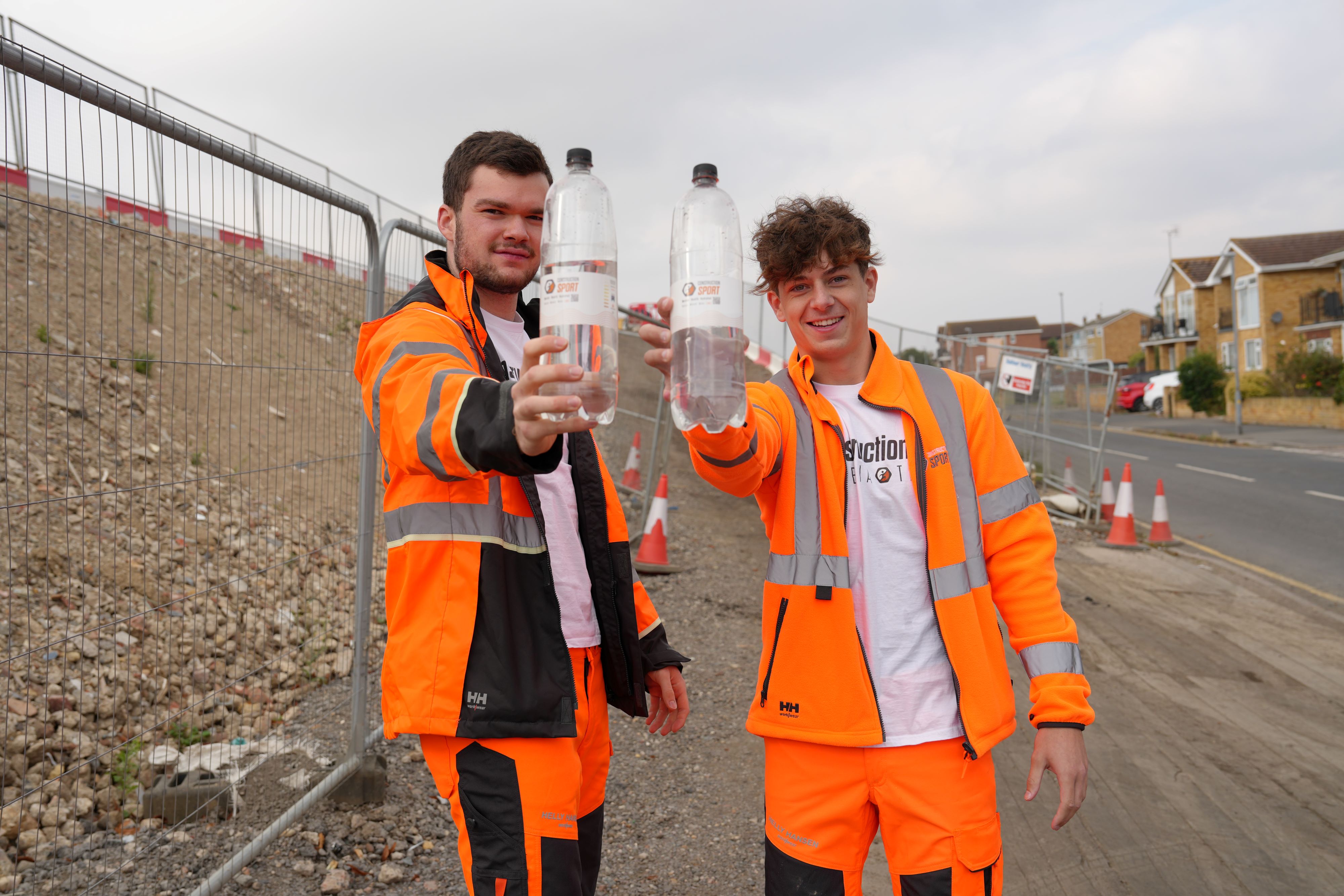Construction Sport survey highlights construction workers at risk dangers of dehydration
Contents |
[edit] New survey by Construction Sport
A survey by the charity Construction Sport has revealed that nearly two-thirds of construction workers are not drinking the recommended daily intake of water, putting themselves at risk both physically and mentally.
The poll, conducted across the summer, found that 64.2% of respondents* said they drank less than two litres of water a day, while over a quarter (26%) admitted that they drank less than one litre a day. The European Food Safety Authority recommends a water intake for men of 2.5 litres per day and a daily water intake for women of 2 litres.
[edit] Mental Health Hydrated
In response to its findings, Construction Sport has launched a ‘Mental Health Hydrated’ awareness campaign, backed by the Considerate Constructors Scheme, which will include site visits, branded water drop-offs and information and advice on keeping hydrated in the workplace.
Steve Kerslake, founder, Construction Sport, said: “Studies prove that drinking plain water is associated with decreased risk of depression and anxiety, and we have heard of several incidents of workers fainting or collapsing on site due to lack of hydration - putting both themselves and workmates at risk. We hope this campaign will remind and encourage those working in construction to make hydration an important part of their daily routine.”
Jeff Lewis, Head of Growth, Considerate Constructors Scheme, added: "We're proud to support the 'Mental Health Hydrated' campaign to bring wider awareness to all construction sites of the need to prioritise hydration to ensure a safer, healthier workforce. Our Considerate Code of Practice promotes supporting safe working, mental and physical wellbeing at work, hydration is a crucial and often overlooked part of this.” A total of 1,000 UK construction workers were surveyed.
[edit] The construction sport hundred club
The construction sport hundred club provides the first ever construction workforce assistance programme. With the support from members they are able to produce and deliver direct resource to support the construction workforce.
Construction Sport understands first hand the severity of the struggles that have come to light in past years for Construction workers, and understands how important it is that the right resource, support and guidance is available and easily accessible.
For more information visit: https://constructionsport.com/hundred-club/
[edit] About Construction Sport
Construction Sport is built to provide sporting opportunities for construction workers to enjoy themselves, in doing so this allows us to let off steam in a positive environment.
Within the Construction industry physical health and safety has been prioritised, the protocols that have been introduced have been made significant improvements, the statistics prove this, on-site fatalities have dropped significantly over the past decades, but that’s just half the battle.
Construction Sport has been launched to give the Construction workforce the opportunity of much needed downtime, away from the tools, away from laptops, away from the stresses of day to day life. By doing this we create opportunities for people to enjoy themselves, let their hair down and address their mental health. By building teams, we save lives.
For more information visit: https://constructionsport.com/
[edit]  Related articles on Designing Buildings
Related articles on Designing Buildings
- 37% of SMEs suffer mental health problems due to pay issues
- Changing attitudes towards the mental wellbeing of early career Architectural Technology professionals.
- CIOB responds to CITB mental health and wellbeing report.
- Construction leadership for mental health
- COVID-19 and mental health within construction firms
- Construction Health and Safety Group CHSG.
- Construction leadership for mental health.
- COVID-19 and mental health within construction firms.
- Economic upturn masks mental health crisis in 2021.
- Emotional distress
- Empowering the construction industry to take action on mental health
- Emergency services.
- First aid.
- Heat stress.
- Health and safety.
- Hydration.
- Mental health awareness week
- Mental health first aid
- Mental health and wellbeing
- Mental health in the construction industry.
- Occupational health.
- Psychosocial disability
- Tackling mental health issues in construction
- Tackling mental health - 6 point plan
- Understanding and managing workplace stress is critically important to civil engineers.
- Understanding mental health in the built environment.
- Wellbeing.
- World mental health day.
Featured articles and news
UKCW London to tackle sector’s most pressing issues
AI and skills development, ecology and the environment, policy and planning and more.
Managing building safety risks
Across an existing residential portfolio; a client's perspective.
ECA support for Gate Safe’s Safe School Gates Campaign.
Core construction skills explained
Preparing for a career in construction.
Retrofitting for resilience with the Leicester Resilience Hub
Community-serving facilities, enhanced as support and essential services for climate-related disruptions.
Some of the articles relating to water, here to browse. Any missing?
Recognisable Gothic characters, designed to dramatically spout water away from buildings.
A case study and a warning to would-be developers
Creating four dwellings... after half a century of doing this job, why, oh why, is it so difficult?
Reform of the fire engineering profession
Fire Engineers Advisory Panel: Authoritative Statement, reactions and next steps.
Restoration and renewal of the Palace of Westminster
A complex project of cultural significance from full decant to EMI, opportunities and a potential a way forward.
Apprenticeships and the responsibility we share
Perspectives from the CIOB President as National Apprentice Week comes to a close.
The first line of defence against rain, wind and snow.
Building Safety recap January, 2026
What we missed at the end of last year, and at the start of this...
National Apprenticeship Week 2026, 9-15 Feb
Shining a light on the positive impacts for businesses, their apprentices and the wider economy alike.
Applications and benefits of acoustic flooring
From commercial to retail.
From solid to sprung and ribbed to raised.
Strengthening industry collaboration in Hong Kong
Hong Kong Institute of Construction and The Chartered Institute of Building sign Memorandum of Understanding.
A detailed description from the experts at Cornish Lime.

























